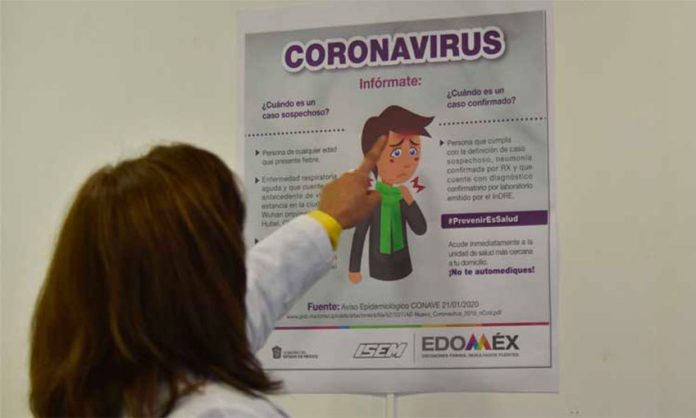It is only matter of weeks until the coronavirus makes its way to Mexico, according to a researcher at the National Autonomous University (UNAM).
UNAM epidemiologist Samuel Ponce de León said that chains of transmission will sprout up around the world within the coming weeks.
“The infection is going to arrive in Mexico. Exactly when, we don’t know, but in the following weeks we’re going to have transmission here,” he said.
He said that it is too early to tell whether or not the country’s hospitals are ready to confront an epidemic.
“That’s what we’re trying to plan, consider and organize in order to respond adequately,” he said, adding that the country will actually face three epidemics: that of the coronavirus as well as the alarm and the fear associated with it, which are often unwarranted and based on false reports.
Pediatric allergy and infectious disease specialist Gerardo López said that there is some cause for alarm, however, as the country’s high rates of obesity, allergies and pollution levels make it a high-risk area for transmission of the virus.
He said that people who suffer from obesity or allergic conditions such as hay fever and asthma, especially children, are especially at risk for contracting the disease.
“We must take into account that, according to national statistics, one of every three Mexican children is obese. So the risk to this population is high,” he said.
It is also estimated that 18% of the population suffers from asthma and 30-40% suffers from hay fever. These conditions debilitate the immune system, making it more likely that these sectors of the population will be affected.
But both specialists stated that there are steps the public and health workers can take to protect themselves.
The working group led by Ponce de León will design information packets for both doctors and the public, contribute to research and social response plans and be involved in working on a vaccine among other efforts.
Linguists at UNAM and the National School of Languages, Linguistics and Translation are working to translate informational materials into both Mandarin and English in order to keep foreign visitors aware of how to protect themselves and others.
López said that people can protect themselves by regularly washing their hands, covering their mouths with the inside of their elbows when they cough or sneeze and avoiding contact with people with flu-like symptoms.
He also recommended eating a balanced diet and for mothers to feed babies breast milk to keep the immune system reinforced.
“It is also necessary to avoid exposure to environmental pollution, which creates a higher risk that the population will be vulnerable to this type of virus,” he said.
Avoiding self-medicating or the indiscriminate use of antibiotics is also vital to protecting oneself from the coronavirus. López stressed the importance of seeing a doctor in the case of showing any signs of respiratory illness.
Sources: Milenio (sp), Diario de Yucatán (sp)
